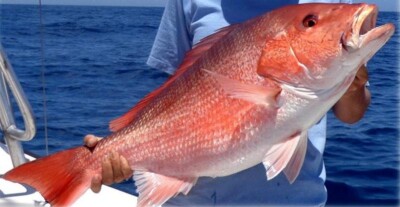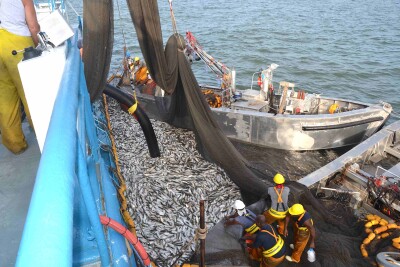As we looked at each other over steaming cups of coffee yesterday morning, somewhat in awe of the atmosphere of the NOAA conference we're attending, New Hampshire groundfish fisherman Dave Goethel summed up my sentiments exactly: The tenor of the panel discussions at Managing Our Nation's Fisheries is surprisingly amenable to the commercial fishing industry.
The sessions here in Washington, D.C., were organized by NOAA staff and have been hosted by panels of knowledgable consensus builders taking a hard look at the Magnuson-Stevens Act. The results have been nothing short of remarkable. Across the canvas of discussion run the themes of allowing fishery management councils flexibility to create working rebuilding programs for those fisheries that do not respond to the arbitrary 10-year rule; working toward management that recognizes all aspects of stock depletion and migratory shifts, including environmental changes; calling for better data, which can be accomplished by continuing and improving collaborative research; and establishing economic baselines for healthy fishing communities and recognizing their importance in sustainable fisheries.
As Jackie Odell, executive director of the Northeast Seafood Coalition, said yesterday, "In order to have a sustainable fishery, there needs to be stability for the fleet."
Sure, there's the odd hard-liner, but they appear here to be the outliers. And in many cases, the marginal voices are the same ones who so recently seemed to have a stranglehold on the nation's progress toward truly workable and sustainable fisheries — those with healthy fish as well as healthy fishing communities.
Yesterday, Peter Shelley of the Conservation Law Foundation, took the microphone to ask the panel not to recommend for flexibility in Magnuson because he believes we ought not write the law for the exceptions to the rule. Unfortunately, Shelley seems unwilling to recognize that flexibility is specifically geared toward those exceptions to the rule.
The law is written for the majority of fisheries, and for those it tends to work fine. But in managing those fisheries for which the biomass does not recognize the significance of returning to full strength in a decade, there ought to be some workable solution for the fish as well as the fishermen. That is what representatives from every single fishery management council requested in the opening comments at this conference.
With a surprising amount of grace and fortitude, we seem to be edging away from the assumption that fishermen are rapacious scoundrels who deserve nothing short of being put out of business for so poorly managing their own resources (which in many cases saw no serious declines until they were under directed federal management).
It remains to be seen what Congress will do with the recommendations that come out of this conference. But regardless of progress or lack thereof (and the latter seems highly likely in the current Congress), there is no doubt that we are seeing the results of a sea change in this industry.
Like Goethel (also a New England Fishery Management Council member and NF Highliner) and many other fishing industry stakeholders, I came into this conference prepared to be slogged by presentations that towed the line. What I have seen is a remarkable turnaround in attitude about our nation's fishing industry. And beyond that, the attendees have exhibited pride, gratitude and understanding.
I've overheard the phrase, "That was refreshing" multiple times in the last three days. It was. Here's to a future we can reach together.






